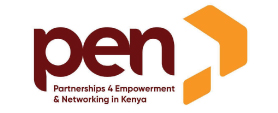Background
Basic education has been identified as a condition for sustained development. Research has shown that investment in school governance and management of education affairs has a direct effect on the quality of education hence enhancing development of a particular place.
In 2008, PEN and the District Education Office initiated, with funding from the Embassy of Finland, a programme of building the capacities of school committees to undertake school management with more informed understanding of education affairs and the critical role they can play in improving standards. Both School Committees and Boards have been strengthened so that they can take a more active role in ensuring that children in their community access quality education services.
Challenge
Good governance in any given institution or organization means the success of it. For a period of about 10 years, Kangundo District had experienced dismal performance in national examinations for both primary and secondary schools. The mean grade for the district was below 3.5 out of 12 points and was ranked among the last 5 Districts within Eastern Province. These was attributed to the following reasons; lack of exercising good governance practices which were raised during the initial capacity building sessions organized to school committees, parent representatives and teachers in the district.
In the school setting, time was poorly managed thus contributing to poor performance. Three schools out of the trained had no committees in place and majority of the schools had committees but did not understand their roles. Also, there were no particular criteria followed in electing some of these committees.
Supervision by the ministry of education had not been adequately and frequently done to schools. This was seen in instances such as where a school that had not been audited for a period of 4 years and chronic absenteeism by teachers and pupils contributing to the low mean score of the majority schools. Poor syllabus coverage and lack of participation by the school committees in the school management were the major factors contributing to poor performance.
Negative attitude by teachers and parents towards education was attributed to lack of follow up of children’s progress in school by parents and low target setting by teachers. It was also pointed out that within the community, there are few role models to be emulated by the pupils but are not aggressive towards education matters.
Intervention by PEN
The District Education Office and the Poverty Eradication Network held participatory sessions to identify the existing gaps and come up with solutions so as to improve the performance in the schools and the entire district. Governance trainings targeting the school management committees, parents’ representatives and senior teachers from the 30 most affected primary schools scoring less than 200 marks out of 500 marks were conducted. Areas focused on included: Free primary education implementation, understanding of the Education Act, Management of school resources, the role of School Management Committees, School development plans and curriculum implementation. Other topics covered included: Conflict management and resolution building, Guidance and counseling and Governance issues affecting primary/secondary schools in Kangundo District. Over 184 people were trained from the primary and 70 from secondary schools.
Impact results
For two consecutive years, 2008 and 2009, a great improvement in performance in national examination of the trained schools were observed moving from 30 primary schools to only one with a mean grade of below 200 marks and a shift from 2.57 to 3.53 out of 12 in secondary schools.
Structures within the schools’ setting in the district have been well organized. School management committees and boards have been put in place following the right guidelines approved by the Ministry of Education. The committees and school boards now understand their roles and participate in school management to ensure success in terms of school development programs including mobilizing decentralized funds for development projects contributing to quality education.
The District Education Office has been held accountable in issues of service delivery towards improvement of academic standards for schools such as supervision, financial audits and proper syllabus coverage.
It also acted on ensuring that private schools which were not adhering to the Education Act regulations and which were business minded changed to focusing on quality of education. The District Education Office closed five private schools which contributed to low mean grades in the district.





